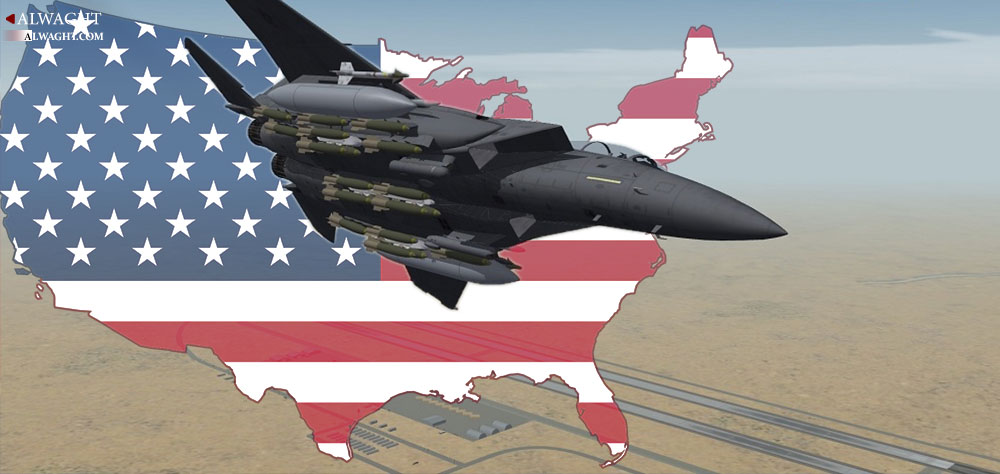Alwaght- Setting up military bases in various parts of the world, especially in geopolitically and economically significant positions, has been one of the major ways through which the global powers secured their interests. The military doctrine of the US that has largest number of military bases in foreign territories, dictates the country to set up even more bases abroad.
West Asia is one of the most important parts, or even the most important part, of the world in which the US holds several military bases. A couple of days ago, the US Congress has authorized allocation of $143 million to push an arrangement by Department of Defense to expand and enhance proficiency of the Muwaffaq Salti military base in Jordan. Earlier, the US Atomic Energy Commission, an American government agency, has issued a report saying that the air base, also known al-Azraq air base, is located in a strategic place and is in urgent need of enhancement of facilities and military potentials in a bid to possibly replace the American air base of al-Udeid in Qatar.
Al-Udeid, the largest American air base abroad, takes center stage among the other American air bases in the region. The well-equipped air base hosts 10,000 American troops and over 120 aircraft.
The question that comes down is that: Despite significance of the Qatari military base, why does the US wants to replace it with the Muwaffaq Salti Air Base?
One reason is related to the American military doctrine that wants the US officials to expand the country’s military bases across the world to save the global US hegemony and tackle newcomers to the global competition such as Russia and China, and the European Union. The American decision-makers know it well that vying with the fresh contestants for the leadership of the global economy needs dominance over the West Asian energy resources.
However, There are more reasons behind US turning to the Jordanian base. The recent regional developments bore much change to the region. An alliance of Russia and the Iran-headed Axis of Resistance apparently crushed the anti-Syrian foreign-sponsored terrorist groups and thwarted relentless efforts of a Western-Arab-Israeli alliance to remove from power the Syrian government led by President Bashar al-Assad and partition regional countries like Iraq. After such losses, Washington has put premium on establishing new military bases in Jordan that shares border with Syria and Iraq.
The US has in service the Turkish air base of Incirlic, but recent Washington-Ankara rifts that resulted in frayed relations between the two allies pushed the Americans to reconsider use of the Turkish air base. Now they are seeking reducing the reliance on Incirlic and instead build bases in northern Syria, where their Kurdish allies are leading a self-ruled region. But Washington has limitations in Syria, too. The uncertainty of the Syrian developments as well as the possibility of the Russian establishment of a permanent military base in the crisis-hit country could preclude the US from building its military base in the north. Therefore, the best replacement is Jordan, a close ally of the US that shares border with Syria, and is poised to embrace the American forces and aircrafts.
Announcement of budget allocation for the Al-Azraq air base also aims to downplay Qatar-based al-Udeid's importance. In mid-July, when the dispute between Qatar and the neighboring Arab monarchies erupted, the US took side with Saudi-led block and blamed Doha for supporting extremist groups. American President Donald Trump also threatened that there were replacements available to the Qatari air base.
“If we ever had to leave, we would have 10 countries willing to build us another one, believe me, and they will pay for it,” the American leader was quoted as saying.
When it comes to dealing with the rift between Qatar and Saudi Arabia, the UAE, Bahrain, and Egypt the US is certainly a behind-the-scene supporter of the blockading countries though it said it takes a neutral position between the neighbors. This approach serves as a pressure tool in the hands of the Americans to beside saving diplomatic ties with the Arab emirate press Doha leaders to rethink its regional policies, including its backing for the Muslim Brotherhood and relations with Iran.
But it has been several months since the Qatari diplomatic crisis, and Doha has shrugged off the strains put on it by the blockaders and rejected to back down from its independent stances. The American announcement to replace Muwaffaq Salti Air Base with al-Udeid can renew the pressures on Qatar which is asked to accede to the key American demands: Staying away from Iran and bowing to the Saudi leadership of the six-nation Cooperation Council.
But it needs to be taken into account that not only the Jordan is not as wealthy as Qatar to make proper conditions to host the American forces but also the Muwaffaq Salti Air Base lacks the necessary position, infrastructure, and facilities that exist in al-Udeid.
Qatar throughout the 1990s spent over $1 billion to construct al-Udeid Air Base and put it into service of the American personnel and military aircraft. The Qatari government in 2005 offered to the US to spend about $400 million to upgrade the military installation including the personnel homes and dormitory facilities, command and control facilities, and fuel tankers with a capacity of 1 million gallons per day. Jordan is far from that financially strong to make such provision.



























